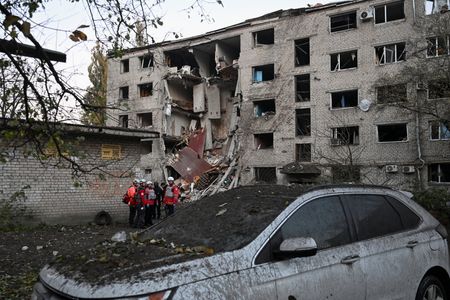By Andrius Sytas and Janis Laizans
RIGA (Reuters) -Latvia’s parliament voted on Thursday to quit an international treaty aimed at combating violence against women, after a conservative partner in the ruling coalition broke ranks to support the move in defiance of both the prime minister and president.
The Istanbul Convention, established by the Council of Europe and signed by dozens of member states, defines violence against women as a violation of human rights and addresses various forms of gender-based violence.
But Latvian opponents of the treaty argue it introduces a definition of gender that goes beyond biological sex, framing it as a social construct. They say existing national laws are sufficient to address gender-based violence.
One of three coalition parties, the Greens and Farmers Union, broke ranks with Prime Minister Evika Silina and joined the opposition to push through the withdrawal by 56 votes in the 100-seat parliament.
“This will not influence domestic violence in any way. Protections against domestic violence were in Latvian law even before the Istanbul Convention,” Gunars Gutris, a member of parliament from the Greens and Farmers Union, told Reuters.
Around 5,000 people had protested in central Riga on Wednesday against the withdrawal, public broadcaster LSM reported. Silina addressed the crowd, voicing her support for remaining in the treaty.
“This will be a devastating blow to Latvia’s standing in the European Union, as well as internationally”, Andris Suvajevs, chair of the parliamentary group of Progressives, the liberal government coalition party, told Reuters.
The convention was first signed in Istanbul in 2011 and came into force three years later, with most European Union countries signing and ratifying it.
Latvia, which ratified the treaty in 2023, is on track to be the second country to withdraw. Turkey drew sharp criticism from the European Commission when it quit in 2021.
In 2020, Poland’s then right-wing government began a process of withdrawing from the treaty, but has since been replaced by the centrist cabinet of Prime Minister Donald Tusk, who last year cancelled the plans.
The Czech Republic’s parliament last year narrowly failed to ratify the convention, which it had signed in 2021.
(Reporting by Janis Laizans in Riga and Andrius Sytas in Vilnius; Editing by William Maclean and Matthew Lewis)










